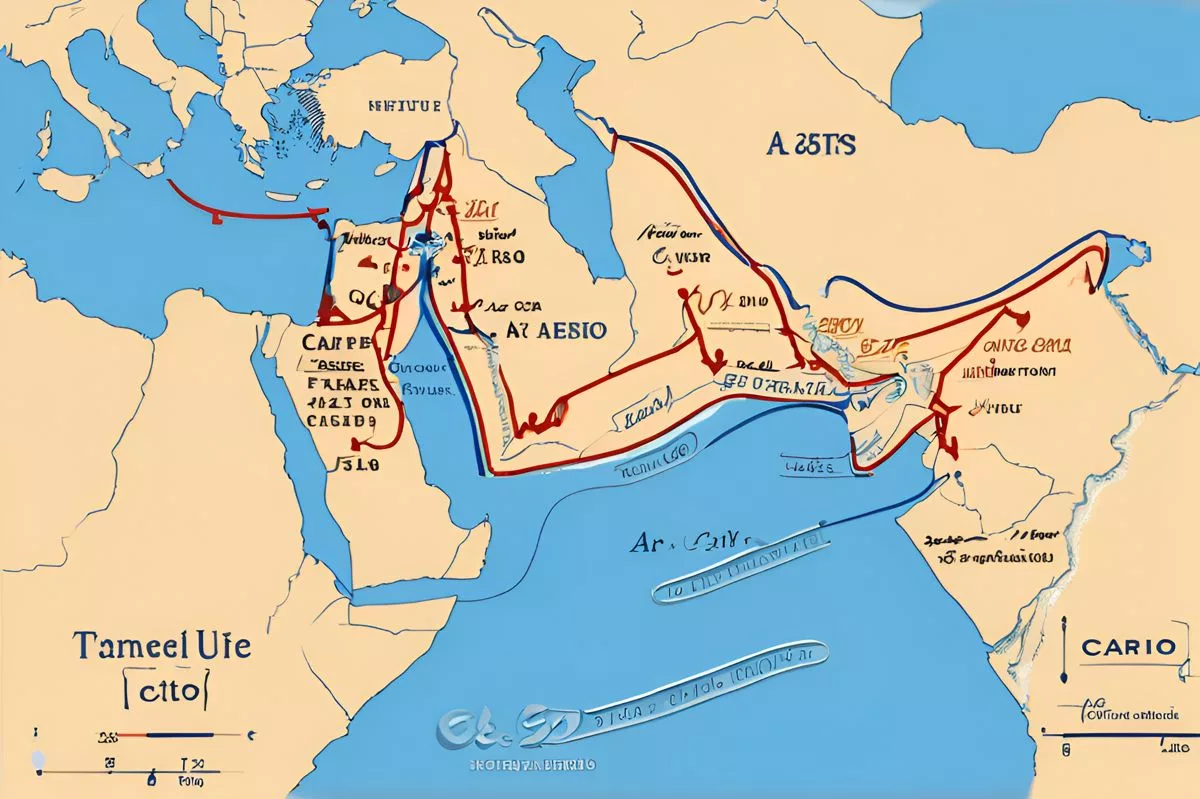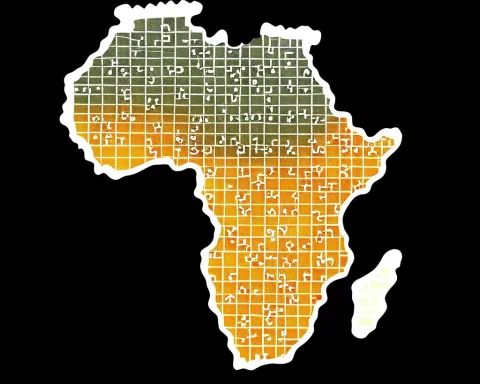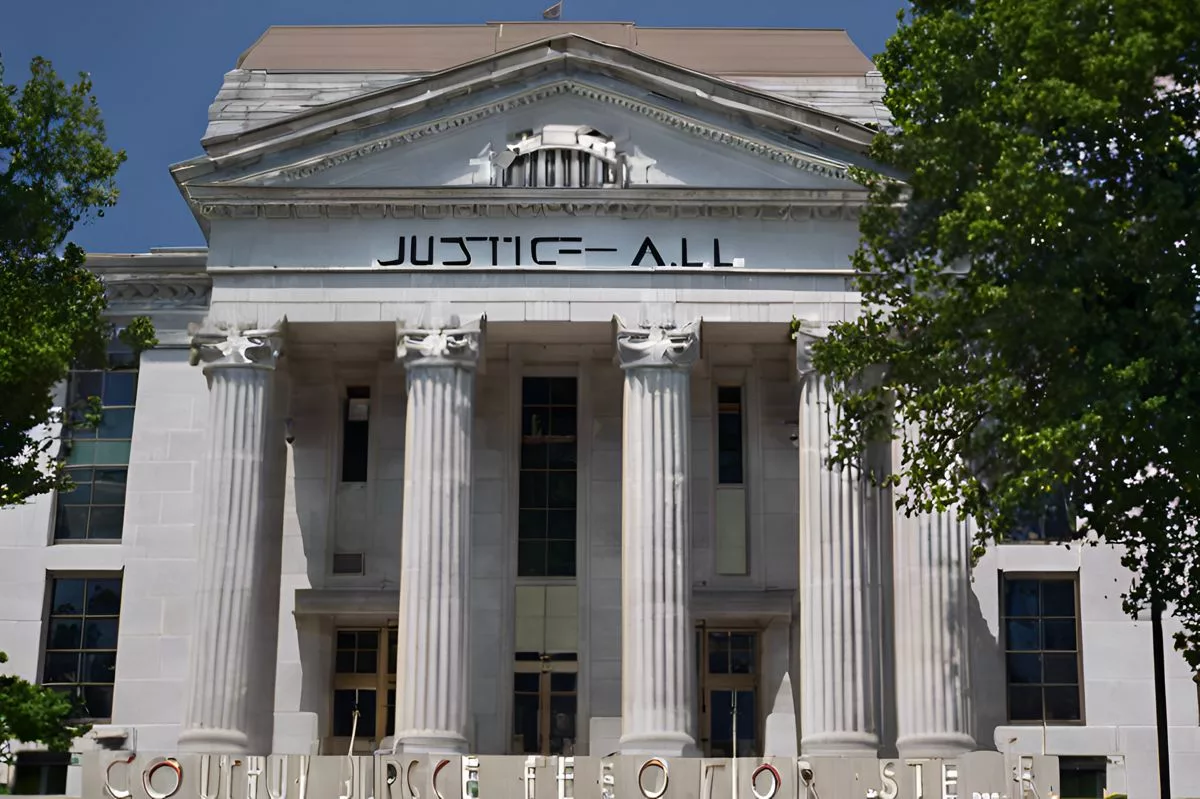The Joint Commission for Cooperation (JCC) between South Africa and Egypt has marked its 10th session, a testament to the enduring friendship between the two nations. The JCC covers trade and investment, agriculture, health, tourism, and more, and aims to promote sustainable growth and prosperity. The bond between Egypt and South Africa is deeply rooted in their history of resisting oppression and their mutual commitment to freedom and justice. The JCC session is an opportunity to strengthen their relationship and tackle global challenges together.
What is the Joint Commission for Cooperation (JCC)?
The Joint Commission for Cooperation (JCC) is a platform that signifies the deep-seated and long-standing bond between the Republic of South Africa and the Arab Republic of Egypt, an association hinged on mutual respect, collaboration, and fellowship. The JCC extends across various sectors, including trade and investment, agriculture, health, tourism, among others, and aims to catalyze sustainable growth and prosperity for both countries.
Distinguished Mr. Sameh Shoukry, the esteemed Minister of Foreign Affairs of the Arab Republic of Egypt, respected delegates of both countries, revered media personnel, I stand here today, privileged and honored, to inaugurate the 10th session of the Joint Commission for Cooperation (JCC). This event signifies the deep-seated and long-standing bond between the Republic of South Africa and the Arab Republic of Egypt, an association hinged on mutual respect, collaboration, and fellowship.
Deep-rooted Connections
The bond uniting Egypt and South Africa is lengthy and deeply entrenched, anchored in our mutual history of resisting oppression. This bond is solidified by our unwavering commitment to freedom and justice. We owe our gratitude to Egypt’s consistent support to the anti-apartheid movement and for championing the cause of the oppressed South Africans during those troubled times. This dedication isolated an unfair regime, ultimately resulting in the emergence of a democratic South Africa.
Egypt’s role in shaping African history and its contributions to the global civilization is legendary and widely acclaimed. Deriving from a profound desire for justice, freedom, and self-reliance, Egypt has persistently been a staunch advocate of anti-colonialism, tirelessly advocating for Pan-Africanism and continental unity.
Shared Heritage and Vision
The legendary Egyptian leader, Gamal Abdel Nasser’s legacy, who established the Organisation of African Unity (OAU) in 1963, is a tale of African and Arab unity. Egypt, along with South Africa, Algeria, Senegal, and Nigeria, were the trailblazers for the New Economic Partnership for Africa’s Development (NEPAD), signifying our mutual commitment to African progress.
The Cape to Cairo nexus is a powerful symbol of our shared past and vision for the future, guiding our path towards regional integration. Our bilateral cooperation, as defined by the JCC, extends across various sectors, including trade and investment, agriculture, health, tourism, among others. I am confident that this extensive cooperation will catalyze sustainable growth and prosperity for our respective countries.
A World of Challenges
We must remember that we inhabit a world riddled with challenges. Global peace, stability, and security are precariously balanced, with escalating conflicts and wars demanding our immediate attention. The United Nations, embodying the global order, and regional organizations, must decisively address these issues.
However, the rise in unilateralism and blatant disregard for multilateral principles is troubling. South Africa, along with many other nations, is deeply distressed by the tragic events unravelling in Palestine, the relentless attacks on Gaza, and the ongoing struggle of the Saharawi people.
In this scenario, silencing the guns on our continent is an urgent task that needs to be tackled. South Africa emphasizes the significance of dialogue, mediation, and negotiation as the key elements for peaceful conflict resolution.
Environmental Concerns and Way Forward
Climate change is another immediate and existential threat that calls for our collective responsibility. The drastic weather conditions, rising global temperatures, and the unique risk faced by smaller island nations due to rising sea levels highlight the urgency of the situation.
Given these challenges, the value of strengthening the relationship between South Africa and Egypt is indispensable. Let’s use this JCC session as a platform for strategic guidance and identifying new areas of cooperation. Let’s work together to foster peace, stability, development, and above all, transformation.
To conclude, the bonds that connect South Africa and Egypt are robust, rooted in a spirit of friendly collaboration and mutual cooperation. I look forward to our discussions in this 10th JCC session, hoping it will fortify our bond and steer our nations towards a future defined by peace and prosperity.
Lastly, I wish to express my heartfelt appreciation, Mr. Sameh Shoukry, for accepting my invitation to visit South Africa. Thank you.
1. What is the Joint Commission for Cooperation (JCC)?
The Joint Commission for Cooperation (JCC) is a platform that signifies the deep-seated and long-standing bond between the Republic of South Africa and the Arab Republic of Egypt, an association hinged on mutual respect, collaboration, and fellowship. The JCC extends across various sectors, including trade and investment, agriculture, health, tourism, among others, and aims to catalyze sustainable growth and prosperity for both countries.
2. What sectors does the JCC cover?
The JCC covers various sectors, including trade and investment, agriculture, health, tourism, and more.
3. What is the history between Egypt and South Africa?
The bond between Egypt and South Africa is deeply rooted in their history of resisting oppression and their mutual commitment to freedom and justice.
4. What are the global challenges that Egypt and South Africa are tackling together?
Egypt and South Africa are tackling global challenges such as escalating conflicts and wars, the tragic events in Palestine, the struggle of the Saharawi people, and climate change.
5. What is South Africa’s stance on peaceful conflict resolution?
South Africa emphasizes the significance of dialogue, mediation, and negotiation as the key elements for peaceful conflict resolution.
6. What is the way forward for South Africa and Egypt?
The value of strengthening the relationship between South Africa and Egypt is indispensable. They should use the JCC session as a platform for strategic guidance and identifying new areas of cooperation to foster peace, stability, development, and above all, transformation.












